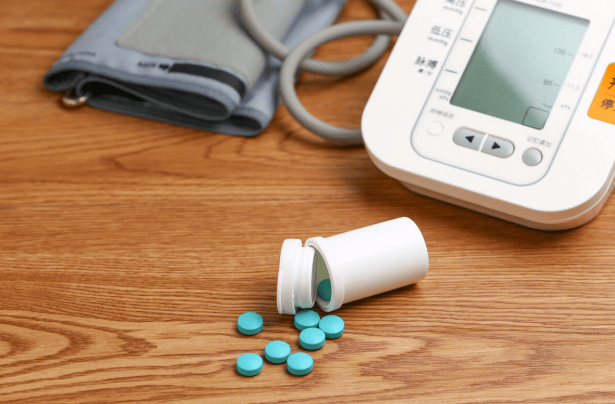Hypertension is a common chronic disease, and it is closely related to bad lifestyle habits. Once diagnosed, hypertension can only be controlled but not reduced, which means continuous use of antihypertensive drugs is necessary to control blood pressure.
Some people may not consider antihypertensive drugs to be particularly expensive and think it’s no big deal to take them daily. However, “all medicine has side effects”, frequent use of antihypertensive drugs can lead to changes in the body.
Here are 5 changes that occur when taking antihypertensive drugs for a long time:
1. Increased burden on the liver and kidneys
As the main organs for detoxification in the body, the metabolism of drugs needs to be processed by the liver. Over time, this can easily cause liver damage. The main function of antihypertensive drugs is to regulate blood pressure by excreting sodium ions from the body, affecting the metabolic abilities of the liver and kidneys, leading to liver and kidney diseases.
2. Affects vascular health
Although the purpose of antihypertensive drugs is to stabilize blood pressure and prevent hypertension, they can also damage blood vessels in the body, leading to vascular hardening and potential pressure fluctuations, threatening vascular health.
3. Dehydration
Long-term use of antihypertensive drugs can cause dehydration in the body because the metabolism in the liver consumes a lot of water, leading to various bodily discomforts.
4. Increases blood lipid and blood sugar levels
Under the influence of antihypertensive drugs, the body may experience significant endocrine disorders, which can lead to metabolic abnormalities. As a result, blood lipid and blood sugar levels may rise abnormally, explaining why people with hypertension often have abnormal blood lipid and blood sugar levels.
5. Liver and kidney damage
Prolonged medication can easily lead to liver and kidney damage, affecting male functionality due to insufficient liver and kidney function.
There is a saying, “To unpick a bell’s knot, the person who fastened it is needed”. Since antihypertensive drugs are harmful to the body, paying attention to the following three points in diet is essential for controlling blood pressure:
Three types of diets that can easily cause blood pressure fluctuations:
1. High-salt diet
The common belief now is that high blood pressure is caused by excessive sodium ions in the body, leading to sodium-potassium imbalance. This imbalance causes water-sodium retention in the body, increasing pressure in the blood vessels and resulting in high blood pressure. It is important to limit salt intake to stabilize blood pressure, with adults advised not to exceed 6 grams per day.
2. High-fat foods
Excessive intake of high-fat foods can increase blood viscosity, which may lead to high blood lipids rather than high blood pressure. In reality, high blood pressure and high blood lipids often go hand in hand, as increased blood viscosity increases resistance to blood circulation, elevating blood pressure.
3. Alcohol
Alcohol consumption harms the body, affecting not only the liver but also the health of blood vessels. Alcohol consumption causes abnormal contraction of blood vessels, leading to increased blood pressure.
To ensure stable blood pressure, pay close attention to these three types of diets.
To control blood pressure, focus on these three points:
1. Rehydrate promptly
Water is essential for life, and replenishing water promptly can not only compensate for dehydration caused by antihypertensive drugs but also dilute the blood, relieve pressure on blood circulation, and help stabilize blood pressure. Organic Qingchi Chrysanthemum tea can further improve blood pressure stability as it contains selenium, flavonoids, choline, and other components.
Studies have shown that selenium has a strong protective effect on blood vessels, promoting the metabolism of harmful substances in blood vessels and improving blood circulation. Choline promotes lipid metabolism and blood dilution, while flavonoids activate myocardial cells and enhance blood circulation. Have a cup each day to help stabilize blood pressure and protect blood vessels.
2. Avoid staying up late
Staying up late can disrupt the body’s endocrine system, leading to metabolic abnormalities that can cause fluctuations in blood pressure. To ensure stable blood pressure, it is best to avoid staying up late and maintain a regular sleep schedule.
3. Exercise more
Exercise is beneficial to health and can have a positive impact on stabilizing blood pressure. Regular exercise softens blood vessels, prevents vascular hardening, dilutes blood, and promotes blood circulation, which is beneficial for stable blood pressure. Individuals with hypertension, however, should avoid choosing overly strenuous exercises to prevent drastic changes in blood pressure due to intense physical activity.


